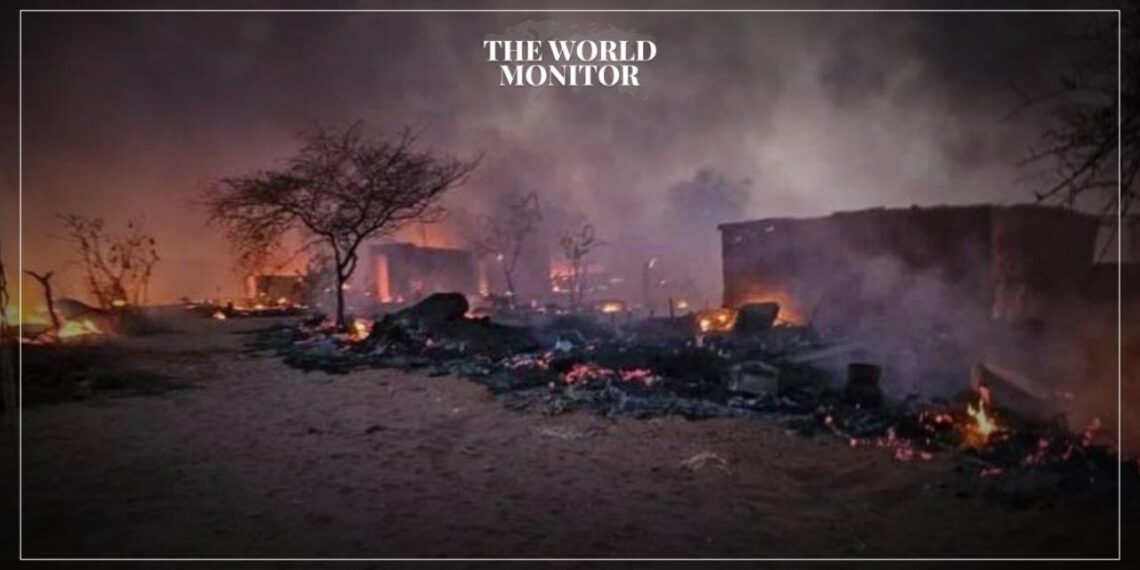Al-Fashir, Sudan – Renewed clashes erupted between the Sudanese army, supported by allied armed movements, and the Rapid Support Forces (RSF) in Al-Fashir, the capital of North Darfur state in western Sudan.
Local sources reported that Sudanese army warplanes bombarded RSF positions east of the city, while the RSF responded with heavy artillery shelling in the southwest of Al-Fashir.
Since May 10, Al-Fashir has witnessed ongoing battles between the army, backed by the joint forces of armed struggle movements, and the RSF. This is despite international warnings against fighting in the city, which serves as the operational hub for humanitarian efforts across Darfur.
The continuous clashes have resulted in the death and injury of dozens of civilians, the destruction of property, and the displacement of hundreds to other cities.
On Monday, Darfur Regional Governor Minni Arko Minnawi announced that allied armed movements with the army had recaptured the Golo reservoir, located west of Al-Fashir.
According to military sources, the armed movements and the army regained control of the Golo reservoir after RSF forces withdrew following airstrikes. The reservoir was secured by large forces afterward.
Video footage posted on Sunday showed RSF forces controlling the Golo reservoir, with individuals declaring their intention to shut off the water supply to Al-Fashir.
A reliable source told “Al-Taghyeer” that RSF forces in the Al-Kuma area east of Al-Fashir opened fire early Monday morning on a convoy of buses heading to Al-Fashir to transport the state’s pilgrims.
Field commander Ali Rizgallah, known as “Al-Safana,” called on the residents of Golo to return to their homes, assuring them of their protection and the security of their property.
The Golo reservoir, established in 1947 with a storage capacity of 4 million cubic meters, supplies Al-Fashir with 20% of its total water needs. In addition to the Golo reservoir, Al-Fashir relies on other water sources, including 39 wells in Al-Wadi and Al-Qoz, as well as the Saq Al-Naaim aquifer, which covers over 21% of the city’s water needs.
Al-Fashir is currently facing a severe water crisis, prompting authorities to raise the tariff to 2,000 Sudanese pounds per barrel from the sources, selling it to consumers at 2,500 pounds. However, tanker operators have not adhered to this decision, selling barrels for up to 5,000 pounds in some neighborhoods.






